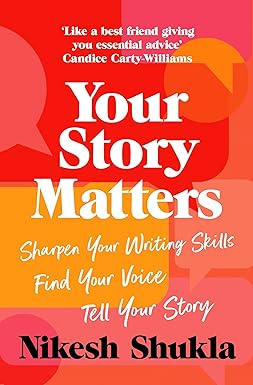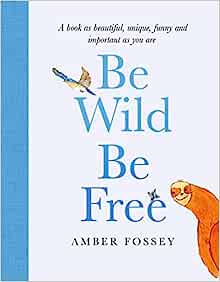Every person’s depression tells a story. Sometimes it’s a whisper, sometimes a scream; sometimes it’s a narrative that loops endlessly, while at other times, it feels like a blank page. What would your depression say if it had its own voice, its own tale to tell?
This question might seem daunting or even unsettling, but it’s a powerful exercise in self-reflection and creativity. By giving form to something as intangible as depression, you can begin to understand its shape, its influence, and maybe even its vulnerabilities.
WHAT KIND OF STORY IS YOUR DEPRESSION?
A Maze With no Exit
Maybe it’s a story about wandering through endless corridors, each one promising a way out but leading to another dead end. The walls are high, and the light barely reaches you, but you keep walking, determined to eventually discover the way out. This is the story of tenacity and the will to never give up.
A Grey Sky That Never Lets the Sun Through
Perhaps it’s a slow, melancholic tale where time moves sluggishly. The protagonist feels suspended in a constant drizzle, where nothing is sharp or vivid, and every step is heavy. But somewhere above the grey, the sun is always there, waiting for you to find a break in the clouds. This is the story of hope and certainty that life can get better.
A Monster in the Dark
Your depression might be a horror story, with an unseen presence lurking in the shadows. It feeds on your fears, whispers doubts in your ear, and grows stronger when you feel weakest. Gradually you start learning how to keep the monsters away. This is the story of regaining your strength and learning how to fight back.
A Silent Void
For some, depression is less a story and more a void – an absence of story. The pages are blank, the characters are missing, and there’s only silence where words should be. Your only way back from the void is to start writing your new narrative. This is the story of taking the first step to reclaim your spirit and become who you really are, without worrying that people won’t like your character.
A Tale of Two Worlds
Maybe it’s a story of duality. By day, the protagonist wears a mask, navigating the world like everything is fine. By night, they retreat into a parallel universe of shadows and solitude, where their true feelings reside. The shadows are always there, ironically strongest in the brightest sunshine, but you can learn to acknowledge and understand who you are in the dark, as well as in the light. This is the story of developing self-awareness and being kind to yourself when you struggle with your own darkness.
WHY WRITE THE STORY OF YOUR DEPRESSION?
To Understand Your Shadows
Writing about your depression helps externalise it, transforming something that feels overwhelming into a story you can observe, analyse, and maybe even rewrite. You can develop characters with traits you wish you had, then take those characters on a journey of self-discovery. This can be a safe space to really explore without risk.
Reclaiming Power
When you narrate the story, you take control of the narrative. You decide how the plot unfolds, how the characters evolve, and whether the tale ends in despair or hope. It can be cathartic and revitalising.
Connecting with Others
Sharing your story can remind others that they’re not alone. Many people feel like their depression isolates them, but your narrative might echo someone else’s experience and create a bridge of understanding. Often we will read a novel which resonates on a personal level, creating a connection between those who have similar experiences.
HOW TO START WRITING YOUR STORY
Personify Your Depression
Imagine your depression as a character. What does it look like? How does it act? What would it say if it could speak? Is it a friend, an enemy, or something more complex? Does it really want to hurt you? Or is it simply like a confused child, acting up but not really sure why? Or would it be more creature than human, incapable of rational thought, forcing you to try and understand it without knowing its motives.
Choose a Setting
Is your story set in a dark forest, a crumbling city, or a quiet room? The setting can reflect the emotional landscape of your depression. You can then create a tiny glimpse of escape – some light through the trees, a track that leads away from the ruins, a shred of light through a slightly open door.
Write Without Judgment
Let the words flow without worrying about grammar, structure, or coherence. This is your story, and it doesn’t need to follow any rules. If you decide that your story is a work that you want to invest yourself in more fully, then you can proofread and edit.
End with a Choice
Decide whether your story will end in uncertainty, hope, or a cliff-hanger. Remember, the story of depression often doesn’t have a tidy resolution, and that’s okay. Also remember that there is often disappointment when a story ends with all loose ends tidied up – it just feels too inauthentic. Better to have a few (minor!) unexpected twists and turns and accept that they are part of an interesting life.
A STORY SHARED: THE POWER OF VULNERABILITY
If you feel comfortable, share your depression story. Whether it’s a sentence, a paragraph, or a novel, your story matters. And in sharing it, you might help someone else feel seen, understood, or inspired to tell their own tale. You are the author of your own journey, and nobody but you can tell it.
RECOMMENDED READING
“Why do stories matter? I tell stories to make sense of the world as I see it. The world I have lived and experienced, read about and heard about, and what I want it to be. I tell stories to make sense of myself. Most stories tend to wrestle with a question, a big central thematic question. And most of those questions can be boiled down to: who am I and who could I be? Who should I be?”
If you want to combine your writing ambitions with your authentic voice, this book is invaluable.
YOUR STORY MATTERS by Nikesh Shukla
(Amazon Affiliate Link)




